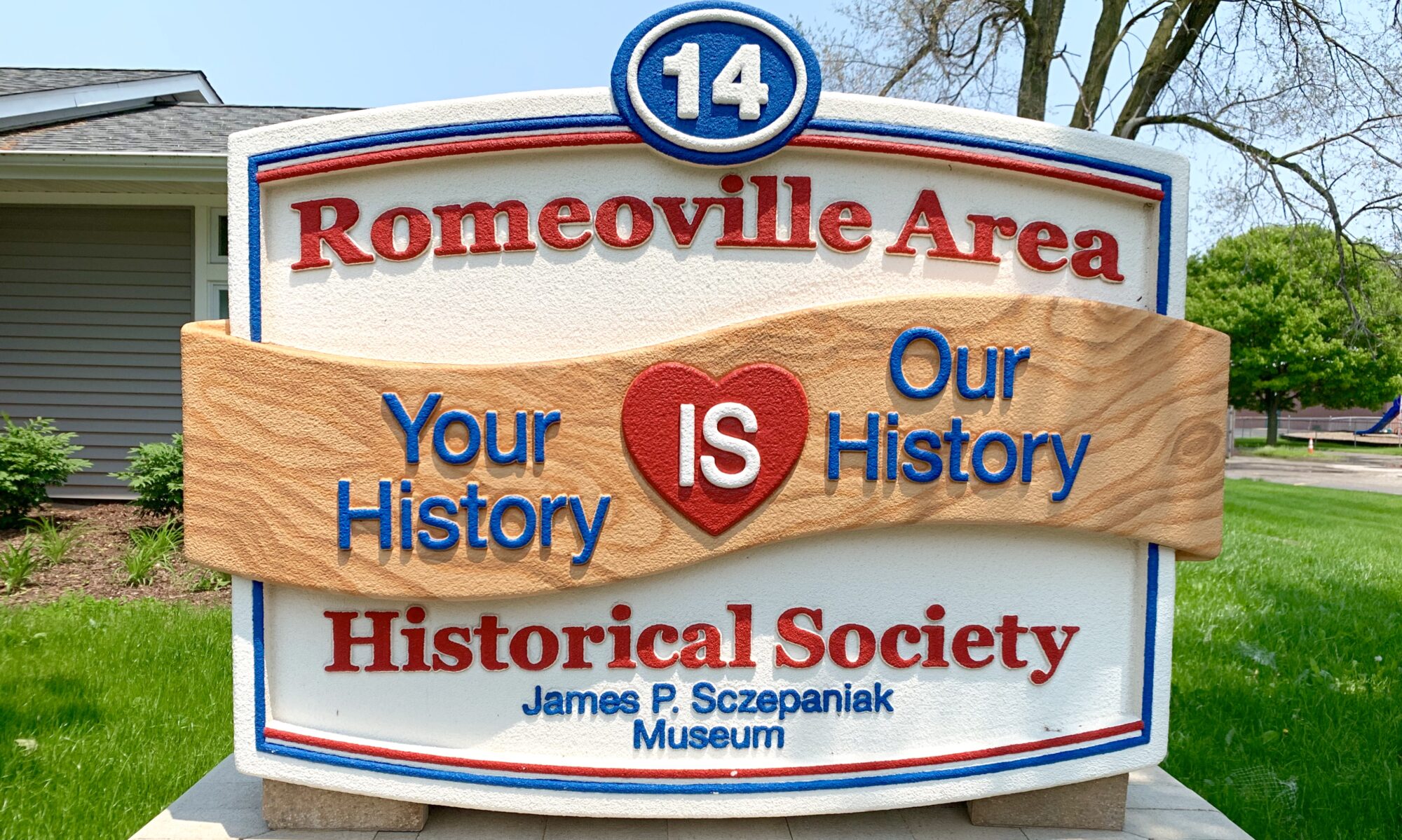The earliest “businesses” in the Romeoville area were the trades with French voyagers passing through the region. The 1830s and 1840s saw a boon of family farming. With the building of the canal and later, the railroad, granaries allowed local farmers to export their goods. Farms occupied the majority of the area for more than 100 years. Dairy was a prime product. Although once landscaped with farms, by the 1950s, Romeoville began developing much of the land, which eventually eliminated many of the farms.
A key, nonfarm export was stone, notably limestone. Local quarries supplied the basic materials for early road construction and buildings. Romeoville became known as ìStone City.î The Illinois State Capitol Building in Springfield is constructed with Romeoville limestone. Some of the quarries were turned into a beach area by the Bruce family, and became known as Romeo Beach.
If a family wasnít known for farming, they probably held a more traditional business. There were many taverns, several restaurants, a hotel, beach cabins, and a small grocery store. Many of these establishments evolved, changing ownership and names, but some, such as White Fence Farms, still thrive in some form today. Today, with its increased development, Romeoville is a pleasant mix of both local treasures and corporate chain stores that serve a larger market.
MEMORIES
These sights were familiar to Romeoville residents.

Plant Smokestacks
You knew you were getting close to home when you could see the coal-burning power plant smokestacks! The two lower smokestacks seen in the above photo were removed in 2019. Built in 1955, the power plant was originally owned by the Public Service Company. It later was owned by Commonwealth Edison (ComEd) for many years. Currently, the plant is managed by Midwest Generation (Will County Station).

The restaurant White Fence Farm has been a Romeoville-area staple for many decades. The location, alongside Route 66 / Joliet Road, has hosted a restaurant since the early 1920s. It was owned by Stuyvesant “Jack” Peabody, on a 12-acre site across from Peabody Coal Company founder Francis Peabody (his father)’s horse farm, and had a hamburger- / ice-cream-based menu. Since 1954, it has been owned and operated by the Hastert (Robert Hastert, Sr.) family. Now known for “the world’s greatest fried chicken”, the signature food is pressure-cooked as part of its preparation. With several additions over the years, the restaurant can seat over 1,000 customers. White Fence Farm is also home to farm animals and a petting zoo, hosting a llama, alpacas, and many Norwegian Dwarf mini goats.
